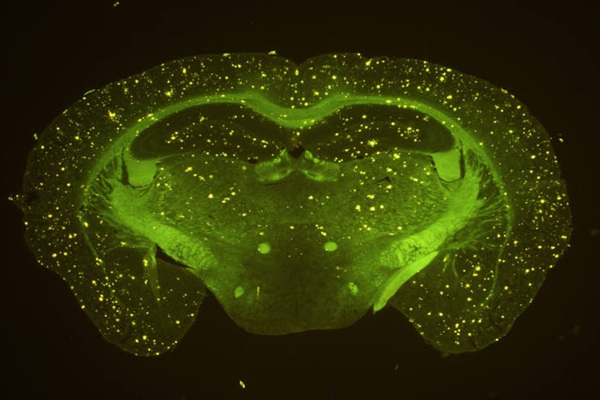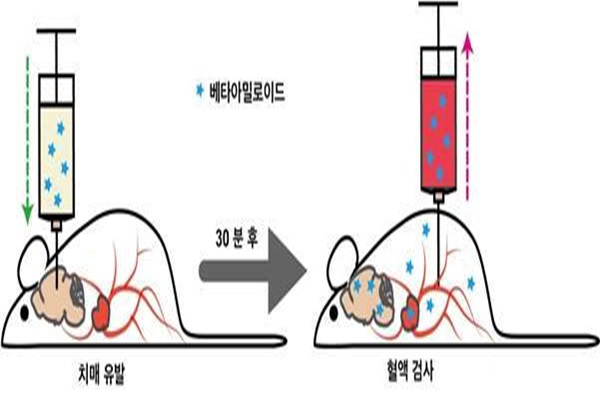Technology that can differentiate Alzheimer’s Disease with just a drop of blood will be commercialized. It is expected that a regular person can easily make a diagnosis on himself or herself and can treat Alzheimer’s Disease in early stage.
Korea Institute of Science and Technology (KIST) made an announcement on the 14th that it will sign on an official contract with a pharmaceutical company in February of 2016 at the earliest regarding transfer of ’Alzheimer’s Disease Diagnosis Kit’ technology that makes a diagnosis on Alzheimer’s Disease with blood. If this technology is commercialized, one can find out whether he or she is diagnosed of Alzheimer’s Disease with just a drop of blood that comes out by pinching with a needle just like small-sized diabetes diagnosis kit.

More than 40 pharmaceutical companies came and packed the house of KIST’s briefing session regarding transfer of technology that makes a diagnosis on Alzheimer’s Disease at an early stage. Some pharmaceutical companies participated in bidding for technology transfer, and KIST is planning to choose a final candidate by end of this year after going over funding power, ability for commercialization and others of participating pharmaceutical companies.
Alzheimer’s Disease Diagnosis Kit was developed by a team led by Ph.D Kim Young-soo, who found a substance ‘EPPS’ that is a candidate for a new drug that can treat Alzheimer’s Disease, of KIST’s Brain Science Research Institute last year. Alzheimer’s Disease happens when protein called Beta Amyloid increases and forms a hard mass in a brain. EPPS plays a role of separating Beta Amyloid that formed a hard mass. As concentration of Beta Amyloid in brain increases, Beta Amyloid in brain also increases proportionally. EPPS will separate Beta Amyloid in Alzheimer’s Disease patient’s blood, and Alzheimer’s Disease diagnosis can be issued if Beta Amyloid occurs.

“Nano-Bio Sensor System for Blood Diagnosis of Alzheimer’s Disease’ technology that was developed by Ph.D Hwang Kyo-sun of KIST’s open-type research business group will also be transferred. This sensor system can make an analysis of Beta Amyloid, which exists in blood in very small amount, in detail. If Alzheimer’s Disease is diagnosed at an early stage by blood, possible chance of this disease becoming very serious can be delayed. This will also contribute in R&D for new drugs.
“Although we cannot talk about a number of pharmaceutical companies that entered bidding, we are planning to negotiate after putting together plans for commercialization and others.” said a patent attorney Byun Ji-hyoung for KIST. “Because contract will be signed by end of 1st quarter of 2016, time period for commercialization will get pushed forward.”
Staff Reporter Song, Hyeyoung | hybrid@etnews.com